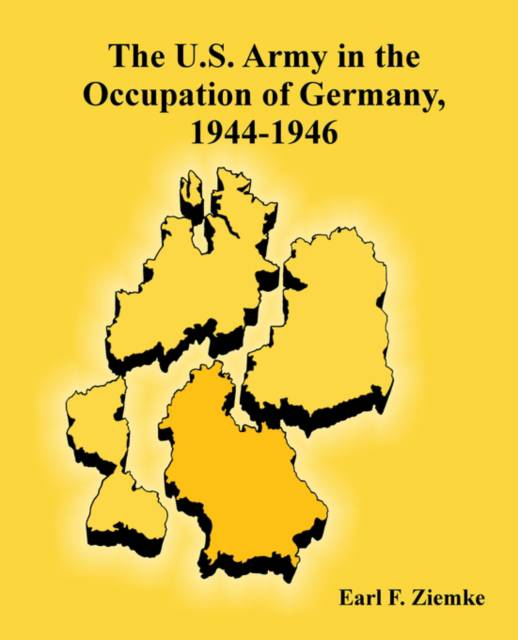
- Afhalen na 1 uur in een winkel met voorraad
- Gratis thuislevering in België vanaf € 30
- Ruim aanbod met 7 miljoen producten
- Afhalen na 1 uur in een winkel met voorraad
- Gratis thuislevering in België vanaf € 30
- Ruim aanbod met 7 miljoen producten
Zoeken
€ 46,95
+ 93 punten
Omschrijving
Long before the dust settled on European battlefields in World War II, the U.S. Army had to face the difficult tasks of occupying and governing war-torn Germany. Its leaders and troops were called upon to deal with a series of complex challenges in political, economic, financial, social, and cultural affairs, tasks beyond the traditional combat roles of soldiers. This volume provides an authoritative account of the role of the U.S. Army in military government and occupation of Germany from the inception of planning until the relative separation of military government and tactical troops in 1946. In the process it offers an in-depth study of the first year, the formative period of the occupation, a most eventful phase in the shaping of post-war Europe. The story ranges from Washington and theater headquarters down to military government detachments in the field, and covers the varied national and international civilian and military apparatus that evolved. Illustrating the diverse approaches of the Americans, British, and Russians, it analyzes efforts to combat hunger, disease, and crime, preserve cultural artifacts, re-establish industry and utilities, and resolve thorny problems involving currency, housing, education, newspapers, elections, and displaced persons. The account shows the pitfalls and difficulties in planning, organizing, and executing such a complex undertaking.
Specificaties
Betrokkenen
- Auteur(s):
- Uitgeverij:
Inhoud
- Aantal bladzijden:
- 496
- Taal:
- Engels
Eigenschappen
- Productcode (EAN):
- 9781410221971
- Verschijningsdatum:
- 18/04/2005
- Uitvoering:
- Paperback
- Formaat:
- Trade paperback (VS)
- Afmetingen:
- 190 mm x 235 mm
- Gewicht:
- 843 g

Alleen bij Standaard Boekhandel
+ 93 punten op je klantenkaart van Standaard Boekhandel
Beoordelingen
We publiceren alleen reviews die voldoen aan de voorwaarden voor reviews. Bekijk onze voorwaarden voor reviews.











